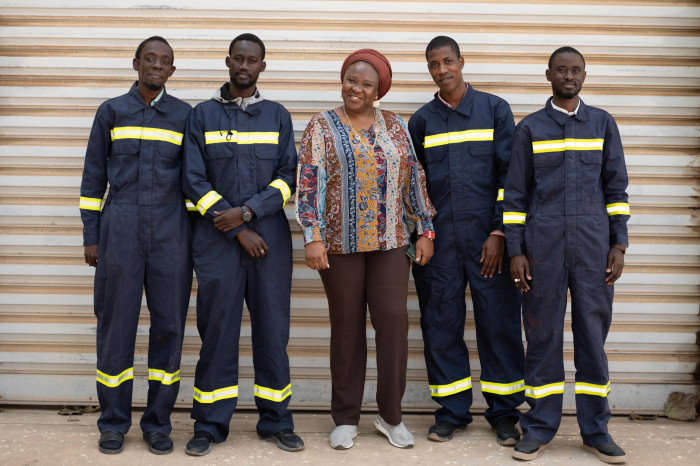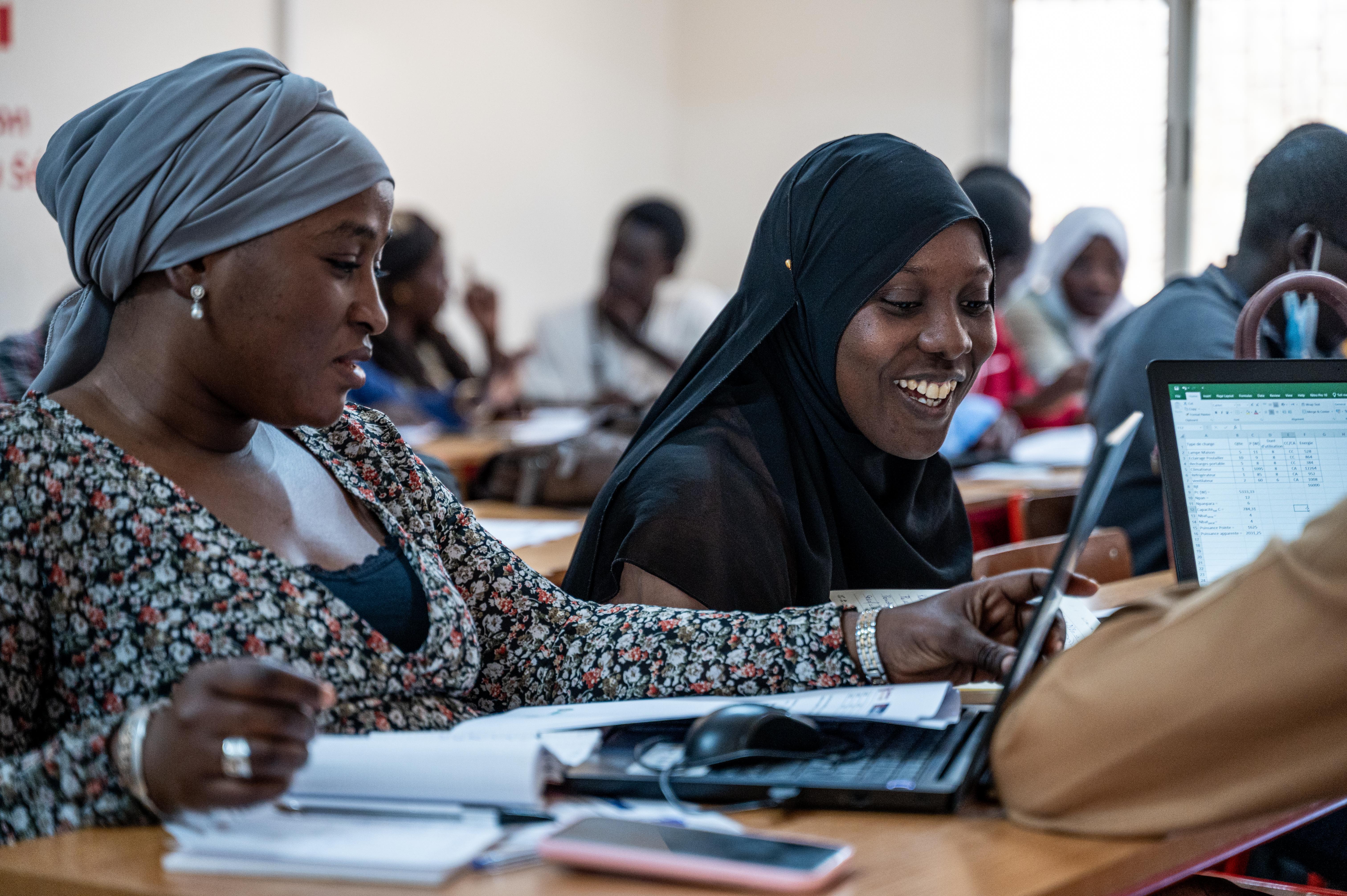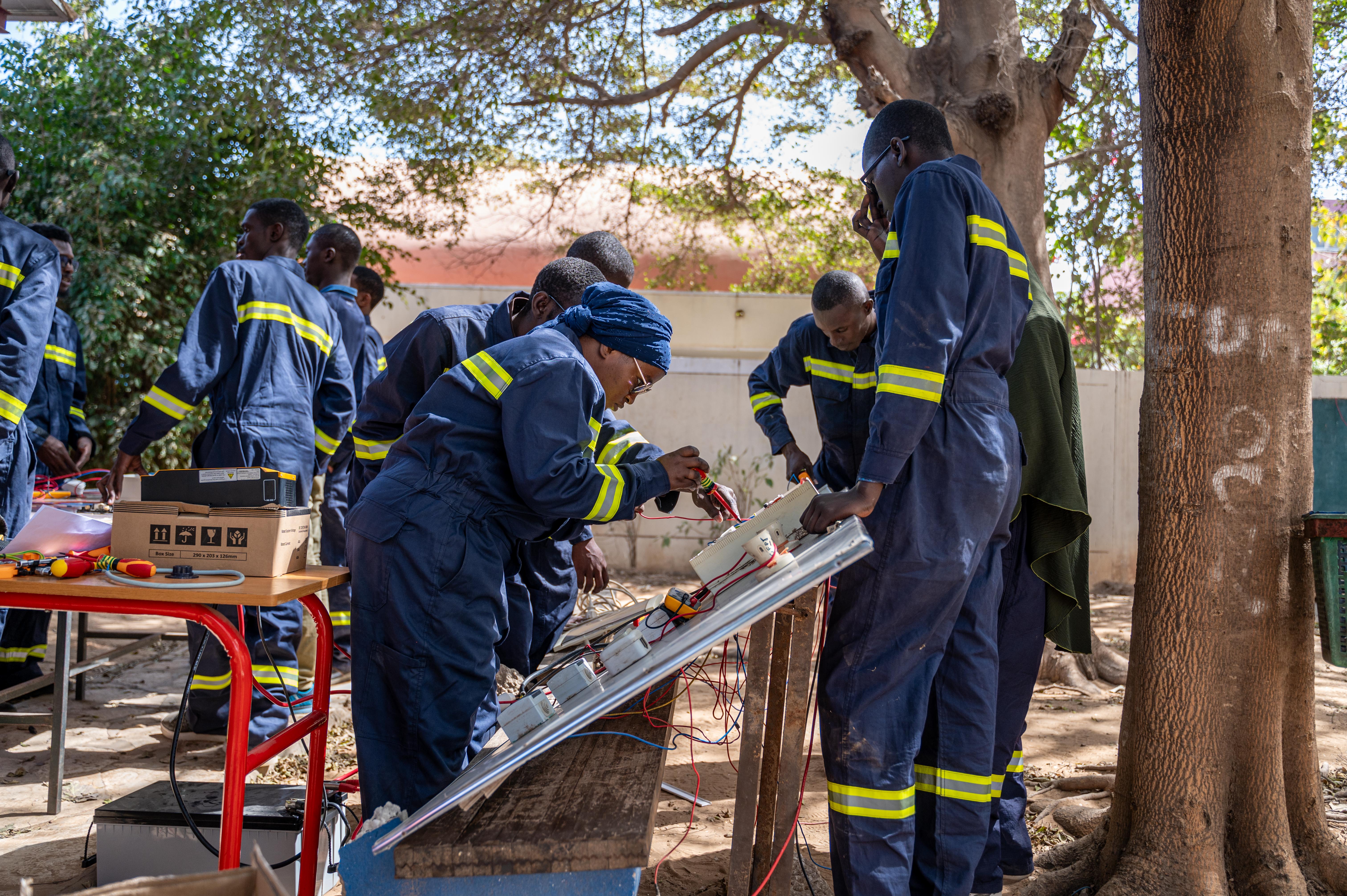
We employ a range of innovative tools and approaches to catalyse Green Finance initiatives. One of our key strengths is our ability to design bespoke financial instruments tailored to the unique needs of each project. These instruments might include sustainability-linked loans and guarantees, green bonds, or blended finance models that combine public and private investment. Moreover, we emphasise capacity building, ensuring that stakeholders are equipped with the knowledge and skills to manage and sustain green projects. Through workshops, training sessions, and collaborative platforms, we foster knowledge and practice, as well as raise awareness about climate risks and demonstrate the benefits of green investments.
Knowing that Green Finance is a very broad field, in the following we want to present two of our projects covering different topics within this area.

Regional Off-Grid Electricity Access Project – empowering Africa’s energy future
In Sub-Saharan Africa, particularly in the Sahelian, Western, and Central African regions, access to electricity remains a critical challenge. Up to 70% of rural populations in these regions lack access to electricity, which hinders economic growth, social development, and environmental sustainability. The Regional Off-Grid Electricity Access Project (ROGEAP) funded by the World Bank, the Clean Technology Fund, and the Directorate General for International Cooperation and implemented by the Economic Community of West African States (ECOWAS) and the West African Development Bank, is an ambitious initiative aimed at improving access to sustainable off-grid electricity across 19 Western and Central African countries. The programme is designed to increase the use of modern solar technology and promote a coordinated regional strategy to supply electricity to individuals, companies, and public institutions.
The ROGEAP programme creates sustainable energy solutions in Africa in supporting economic development and poverty alleviation, while creating a more inclusive financial ecosystem. Our approach consists of four different activities:

Renewable energy adoption: by promoting stand-alone solar technology, ROGEAP contributes to reducing greenhouse gas emissions and fostering a transition to clean energy.
Financial inclusion: by tailoring credit products for small businesses without stable access to electricity on one hand and advising entrepreneurs during the loan application processes on the other, we improve bankability of micro and small enterprises and increase their chances to receive a business loan.
Empowering women: special emphasis is placed on empowering women-led businesses, enhancing their participation in the solar sector, and promoting gender equality.
Capacity building: training programmes for financial institutions and SMEs enhance the overall capacity of the solar industry, ensuring sustainable growth and long-term viability.
The project represents a pivotal step towards addressing the electricity access gap in Sub-Saharan Africa. By leveraging modern solar technology, capacity building, and tailored financial support, ROGEAP not only accelerates the adoption of renewable energy but also fosters economic development, social inclusion, and environmental sustainability. This transformative initiative exemplifies the powerful synergy between climate action and Green Finance, paving the way for a brighter, sustainable future for millions across Africa.
Green credit financial products for agroecological and climate-resilient rural development in Bolivia
The agricultural sector in Bolivia is characterised by significant potential and challenges.
In 2024, together with our colleagues at GOPA Worldwide, we started the three-year GIZ-funded project ProResiliente in Bolivia. In close cooperation with local banks and microfinance institutions, we develop solutions that are specifically designed for farmers in selected agricultural value chains, aiming to facilitate the transition to sustainable agriculture in Bolivia. Our focus will be the development of financial solutions addressing farmers in the Valles Macro-Region, a geographical region reaching from La Paz to Tarija. Together with other components implemented directly by GIZ, a combination of technical and financial support will be key to increasing the resilience of farmers and to improve the livelihoods of their families.
The project addresses one of the problems of the Bolivian agricultural sector, namely the lack of an integrated and broadly effective application of agroecological and climate-resilient transformation of rural areas, especially in the targeted areas (Valles Macro-Region). This requires both considerable capital investments in improved agricultural methods, and creditworthy producers and small entrepreneurs, who are particularly affected by the effects of climate change and are therefore aware of these challenges. Thanks to the design of financial and non-financial solutions adapted to the local context and challenges, the project also strives to achieve financial inclusion of vulnerable groups such as women and young adults.
The financial system plays a crucial role in mobilising and allocating capital, also through blended finance or other innovative solutions, such as digital ones for example. In the ProResiliente project, we provide training for selected financial institutions and key stakeholders in the Bolivian banking and financial sector, alongside the development of a green taxonomy for national adoption. These initiatives aim to adapt financing models to support agroecological and climateresilient farming practices.
Through the development of a green taxonomy – a framework defining sustainable investments – and management systems of environmental and social risks, on the one hand, we facilitate local commercial banks to access subsidised funding from multilateral banks and international financial institutions. On the other hand, we enable local banks to offer tailored green credit solutions to the farmers, and at the same time we educate potential borrowers about benefits of green investments in agriculture.
We believe that fostering a credit culture – defined as a healthy partnership between banks and their clients, facilitated through training and capacity building for both parties – will help close the financing gap for widespread adoption of agroecological production methods among producers.
For more information, please contact marilena.kuenzel [at] gopa.eu
